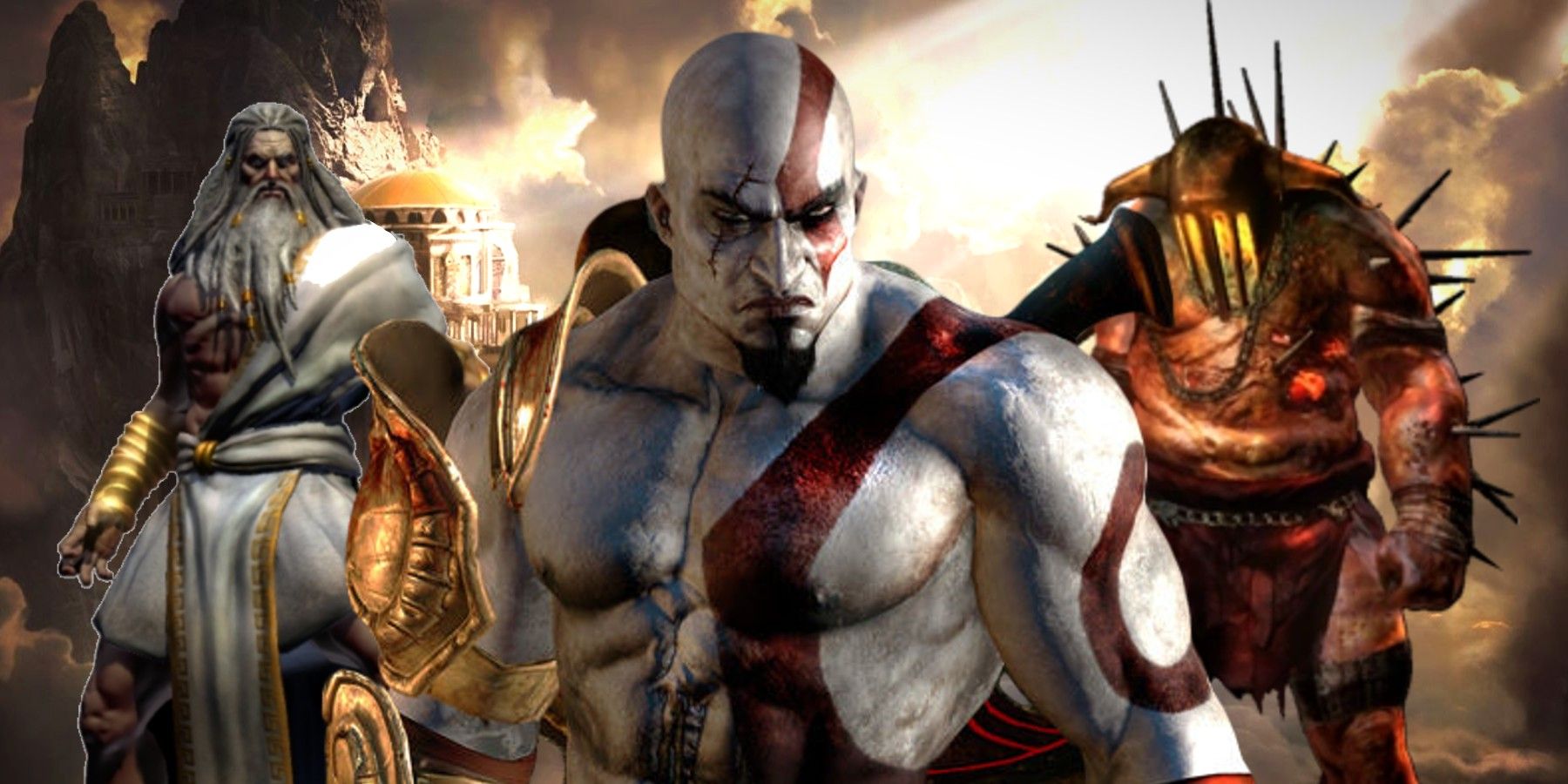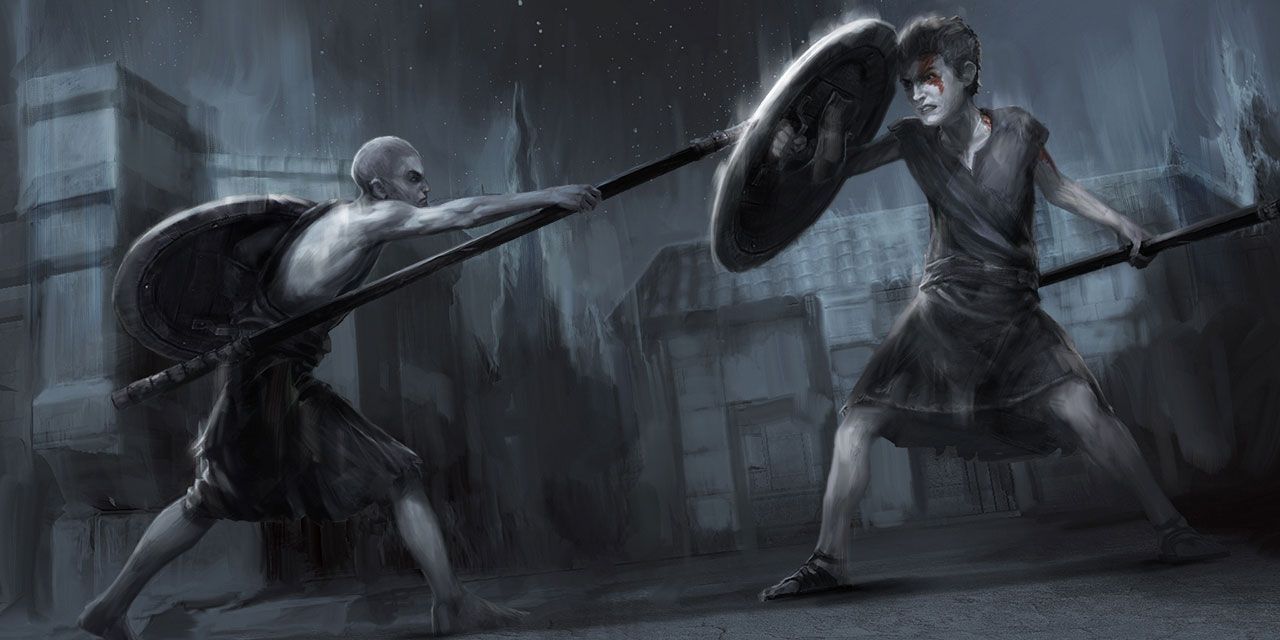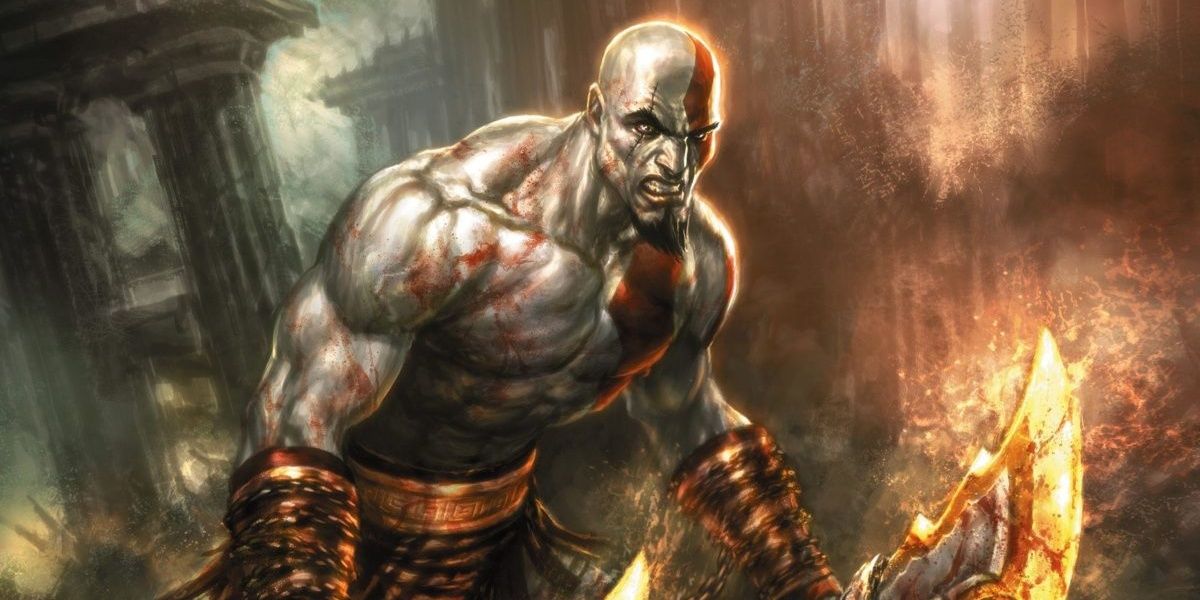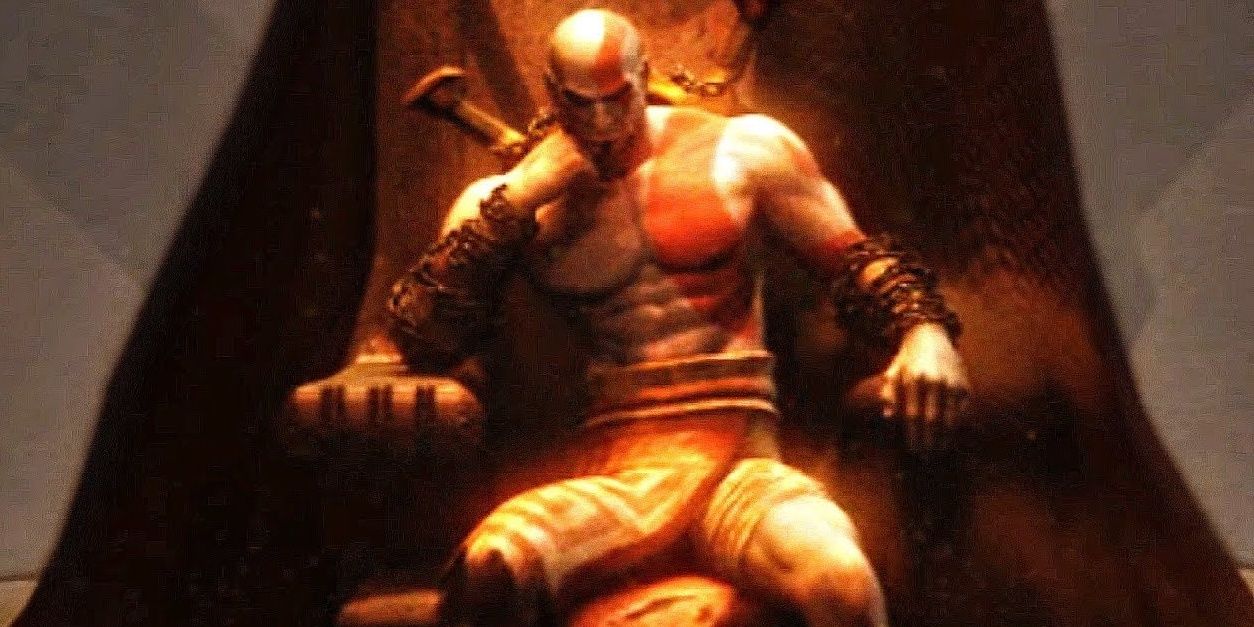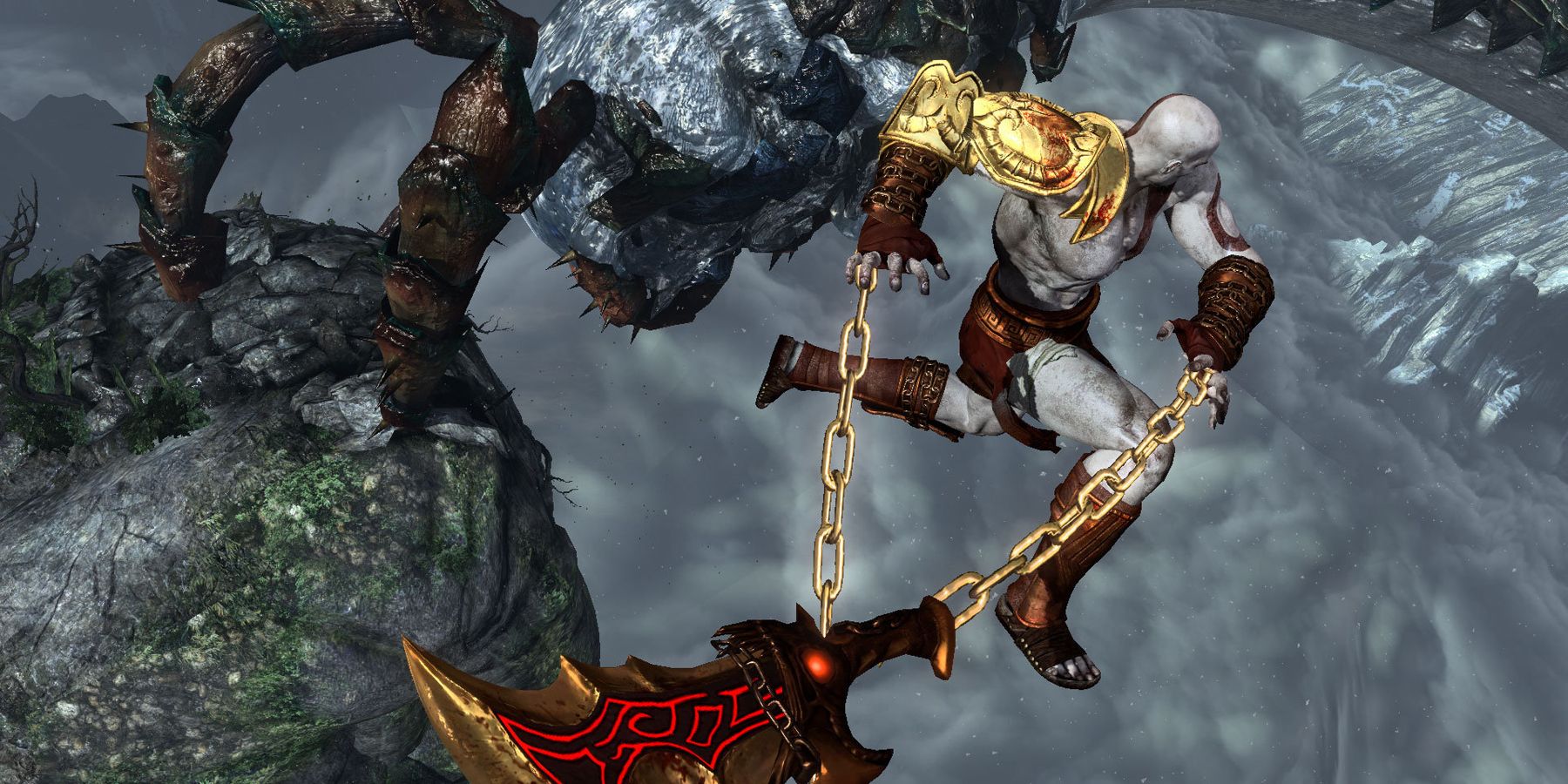By the time that God of War's Norse saga comes to an end, Kratos will have rubbed shoulders with some of the most iconic characters from the ancient world. While plenty of monsters have appeared within the franchise since its PS2-era debut, it’s arguably the gods of the universe that stand out above everything else. Considering the stakes involved with many of these encounters, it's unsurprising that Kratos has been shaped in some way by most of the deities he’s crossed paths with.
It’s clear from Kratos’ personality and physical depiction in God of War 2018 that the Greek pantheon in particular has left the deepest impression on his characterization. From just a quick glance at the aforementioned game, players can almost sense the weight of the journey that's led the Ghost of Sparta to the Norse world. With the climactic God of War: Ragnarok still on course to make its debut on PS4 and PS5 in 2022, now is the perfect time to examine how these gods have shaped the series' protagonist.
Kratos’ Early Days
While Kratos would eventually discover that his origins and fate were tied intrinsically to the Greek pantheon of gods, for the first few decades of his life the character lived in blissful ignorance of this. That’s not to say that Mount Olympus didn’t exact its influence on the youngster during this time though. On the contrary, Kratos’ first conscious interaction with Greek mythology occurred at an early age, and left him with several scars that are still visible to this day.
Following the discovery of a prophecy that predicted the demise of the Greek gods, Athena and Ares were dispatched to seek out a marked child said to be at the center of the apocalypse. Having invaded Sparta to do so, the pair theorized that Kratos’ younger brother Deimos was the boy in question due to his distinct birthmark. During the events of the PSP’s God of War: Ghost of Sparta, players got a first-hand glimpse of Kratos’ attempts to prevent the subsequent kidnapping. While Athena ultimately stepped in to stop Ares from killing the boy, Kratos was still left with a distinct scar across his left eye.
Beyond leaving wounds that are still included within the character’s model in God of War: Ragnarok, the loss of his brother had a profound impact on the trajectory of Kratos’ life. Etching a tattoo of Deimos’ omega symbol birthmark into his skin, the Spartan child dedicated his life to the defense of his homeland. The drive and dogmatic determination to see every task through to its conclusion have both become key aspects of Kratos’ personality, and all came into effect thanks to this one interaction with the Greek gods.
Kratos’ Spartan Days
Having channeled the trauma of his youth into become Sparta’s most prolific General, Kratos’ next interaction with the Greek gods would prove to be just as transformative to his life. Unbeknownst to Kratos, Ares had selected the Spartan to be his champion during a contest amongst the deities of Greece. Once the former found himself at the mercy of Hades’ champion Alrik, Ares stepped in to offer a carefully constructed deal. In exchange for a life of complete servitude, Kratos would be gifted the power to save himself.
Kratos’ decision to accept this offer would arguably prove to be the defining moment of the character’s entire life. Donning the Blades of Chaos, Ares’ chosen symbols of servitude, not only left a scar on Kratos' wrists, but his entire being as well. That’s because, in an attempt to strip away his remaining humanity, the first Greek god of war eventually placed the Spartan’s wife and daughter in the path of his crusade. Thanks to Ares' manipulation and the rage he'd fostered within his champion, both were tragically killed by Kratos prior to the original God of War.
Beyond being cursed to spend eternity with the ashes of his family plastered to his skin, it almost goes without saying that Kratos was forever changed by Ares’ schemes from a mental perspective as well. Having been manipulated into a life of slavery devoid of true love or peace, uncontrollable rage and anguish became the defining aspects of his personality. Even by the time of the franchise’s Norse saga, it’s clear in several scenes during 2018’s game that Kratos is still deeply haunted mentally and physically by his pact with Ares.
The God of War
Even though Kratos’ earliest encounters with the Greek gods shaped his body and psyche the greatest, the chapter of his life that followed also had a profound existential impact on his being. Having experienced a decade of servitude, the Ghost of Sparta was eventually presented with an opportunity to escape his bond to Ares. Thanks to his interactions with the goddess Athena, Kratos was subsequently plunged into the middle of a war between the Olympian factions. Believing that the nightmares of his past would be removed through compliance, Kratos was able to track down Pandora’s Box before using it to kill Ares.
Instead of blessing Kratos with peace, though, Athena stripped away the last of the Spartan General's hope as she presented him with greater power. In exchange for killing Ares, Kratos was granted access to the former god of war’s throne, title, and strength. Unlike the other deities, however, Kratos was never treated as an equal partner during his tenure within the role. His deep-seated hatred and reluctance to trust the gods was reinforced during this time as a result, and is still visible during his interactions with the Norse pantheon in God of War 2018.
The Fall of Olympus
Due to their repeated manipulations, betrayals, and general disregard for his humanity, Kratos’ time amongst the Greek pantheon of gods was relatively short. Instead of reshaping his outlook on the world, Kratos’ stint on Mount Olympus merely reinforced the damage that had already inflicted upon him. With this in mind, it’s unsurprising that Kratos was eventually killed by Zeus during the former's invasion of Rhodes at the start of God of War 2. Like each of the character’s physical wounds from this chapter of his life, the fatal blow is still visible as a scar within the PS4 and PS5 games.
In typical God of War fashion, Kratos’ trip to the afterlife wasn’t enough to keep the character dead for very long. Even though his most destructive godly powers had been transferred to the Blade of Olympus, where they seemingly remain to this day, the revived Ghost of Sparta was still able to mount an assault on Zeus. During a climactic battle between the pair at the end of God of War 2, it was revealed to the player that the lightning-powered deity is actually his biological father.
Following this shock revelation, Kratos was driven to the brink of insanity. Due to the fact that Zeus had played a part in bringing him into existence, all the pain and suffering he had been subjected to by his extended family was magnified exponentially. Even characters like his half-sister Athena, who had offered aid with one hand, had knowingly used him as a pawn behind his back. Kratos’ bloody revenge against the remaining Olympians throughout God of War 3, in addition to all of his prior misdeeds, were shaped primarily by this one event.
It almost goes without saying, but Kratos’ interactions with the Greek gods directly influenced his journey to the Norse world. With Greece left in an apocalyptic state, the former god of war was forced to find salvation for his past elsewhere. Even in God of War’s 2018 soft-reboot, though, the Olympians are still shaping Kratos’ actions. How the character interacts with Atreus and the Norse pantheon is a direct result of the journey of betrayal and suffering he walked while he was in the shadow of the Greek gods.
God of War is available now on PC and PS4.

